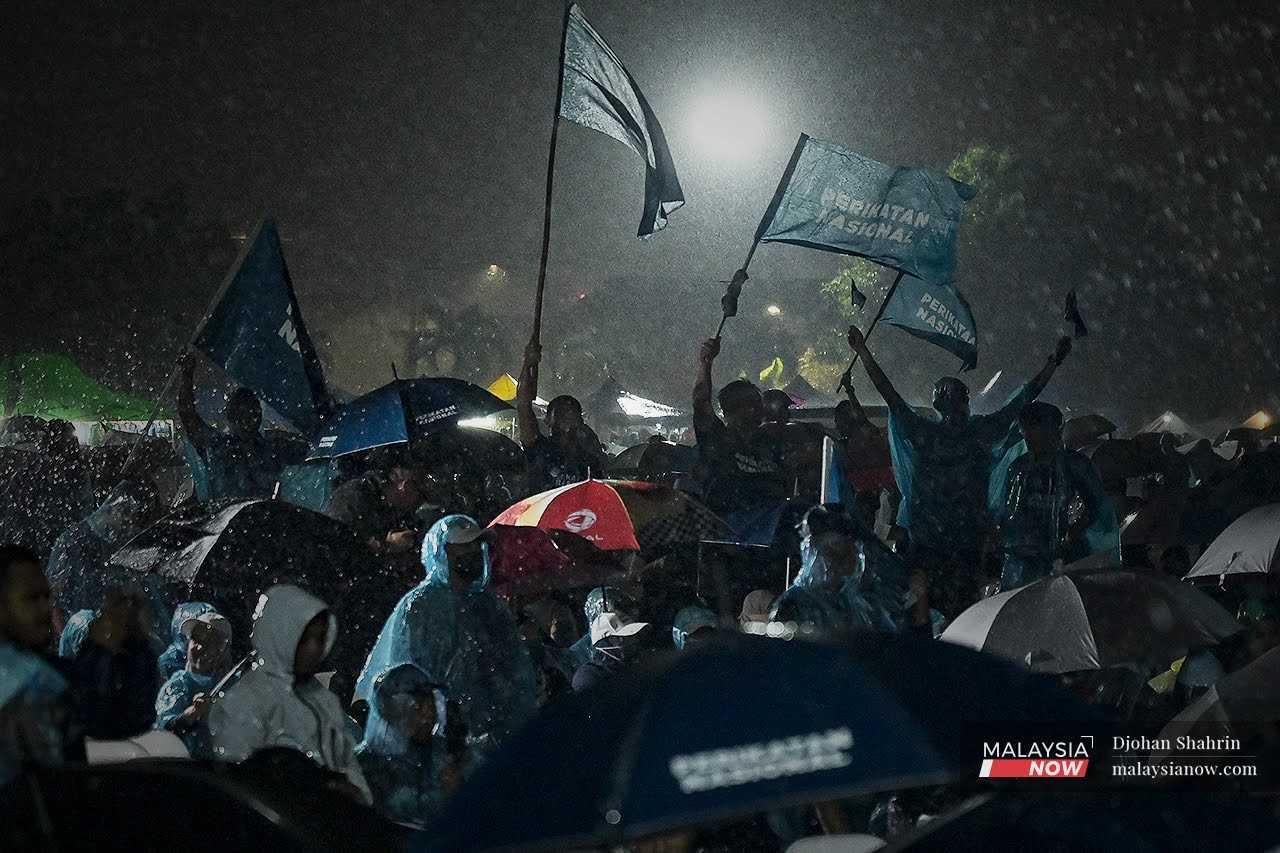Analysts see no PN wave in Selangor yet despite election gains
Nevertheless, much depends on Barisan Nasional's current cooperation with Pakatan Harapan and how long it will last.
Just In
With Perikatan Nasional (PN) chalking up unprecedented gains at the recent general election, questions have been asked about the possibility of a similar wave at the state level, particularly in states traditionally seen as a stronghold of other major coalitions.
In Selangor, a Pakatan Harapan (PH) fortress where state elections will be held next year, such questions come amid the current scenario where Barisan Nasional (BN) has joined the unity government led by PH chairman Anwar Ibrahim.
BN, which lost federal power for the first time at the 2018 polls, won just 30 seats at the Nov 19 election in its worst performance ever.
PH won the most with 82, followed closely by PN with 73.
Such numbers saw PN emerging as the dark horse, defying predictions by researchers and think tanks both within and outside of the country.
The coalition's gains were attributed to a swing in Malay support, a continuation of a trend first seen in the Melaka and Johor state elections.
There, PN had come in second place in many Malay-majority seats, with PH benefiting from the split in Malay votes between BN and PN.
Similar patterns were seen during the general election, including in Tambun where Anwar won 49,625 votes, beating incumbent Ahmad Faizal Azumu of Bersatu with a slim margin of 3,736.
BN candidate Aminuddin Md Hanafiah meanwhile won only 28,140 votes.
Analyst Oh Ei Sun from the Singapore Institute of International Affairs said straight fights between PH-BN and PN could only be assumed if the cooperation at the federal level continued until the Selangor polls.
"We are not even sure if there will be some sort of seat allocation between PH and BN, as BN is not likely to sit still and let PH alone contest the election," he said.
"So there will already be an internal round of mutual leg-pulling first, not to mention going up against the religiously regimented onslaught of PAS and its partner Bersatu."
Selangor was one of several states that did not dissolve their legislative assemblies in tandem with the general election.
At the 14th general election, it was retained by PH which won a whopping 51 out of 56 state seats.
The remainder were won by BN (four) and PAS (one).
PH first took Selangor, the richest state in the country, at the 2008 election when the pact was known as Pakatan Rakyat.
Kartini Aboo Talib, an analyst from Universiti Kebangsaan Malaysia, said she was not optimistic about the odds of a PN tsunami in Selangor.
She said the Malays supported neither the corruption seen as widespread in Umno nor the liberal approach taken by PH.
"For the state elections, the Malay vote will tend towards PN, especially in states with Felda settlements and rural areas with religious schools," she said.
"Selangor has many urban areas and a significant non-Malay demographic, so it's hard to see any 'green tsunami' happening there," she added, referring to PAS and its trademark green flag.
She also questioned the distribution of seats between BN and PH, saying state seats were different from parliamentary seats.
"Bear in mind that BN will not stay with PH forever," she said, adding that PH might see a drop in support at the Selangor election next year.
"The current government is the proposal of the Yang di-Pertuan Agong, who recommended a unity government. But at any moment, BN could decide to compete."
Oh meanwhile said that any BN opposition to PH at the state polls would make things awkward for Anwar, who would have to maintain the synergy of his administration.
"Quite awkward, but not without precedent," he said, citing the example of the 1980s and 1990s where Parti Dayak Sarawak was in the state opposition but together with other Sarawak parties in the ruling coalition at the federal level.
Subscribe to our newsletter
To be updated with all the latest news and analyses daily.
